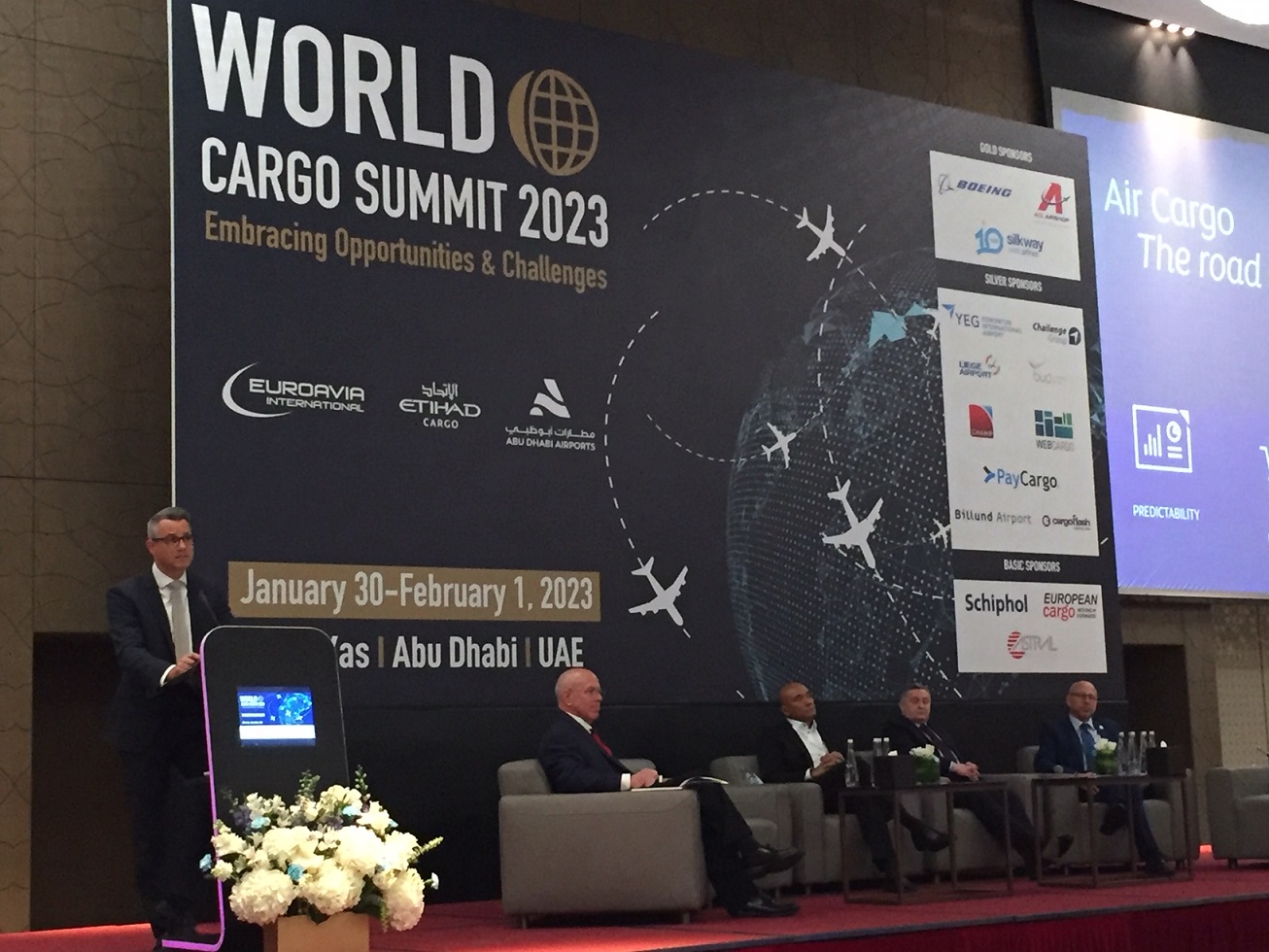Etihad Cargo partnerships key as industry faces overcapacity and lower predictability

Raising standards, developing new offerings and services and partnerships are key for Etihad Cargo over the coming years as the industry faces a changing market.
Speaking at the first in-person World Cargo Summit, Etihad Aviation Group senior vice president sales and cargo Martin Drew said challenges faced by air cargo include: lower predictability, normalising market conditions, the push for sustainability, greater transparency and oversupply.
On lower predictability, he pointed to recent developments that had been impossible to predict, such as geopolitical events and a slowdown in production in China.
“Production in China has slowed down experiencing negative growth for two consecutive years for the first time in a decade,” he said.
“Businesses are now looking to manage costs against the backdrop of high inflation and are looking to buy locally where possible to keep freight outgoings down in addition to meeting sustainability targets.”
He added that market conditions were also normalising as a passenger demand was “back with a boom” and freighters were added to fleets and there was no sign of this slowing.
“With the additional freighter capacity coming into the market along with ongoing recovery in passenger operations we will continue to see ongoing pressure on yields,” he said.
Drew added that customer demands were also changing: “Customers are now looking for higher visibility of their shipment, easier booking process, dynamic prices and advanced solutions.”
They are also looking for more sustainable solutions, he said.
Oversupply is another development facing the air cargo sector.
“If we believe all the capacity announced in the press will actually materialise, there will be a wave of supply which will result in a massive overcorrection,” Drew said.
“Freighter deliveries to airlines are now reaching peak levels with the rolling two-year average at the highest point since 2012.”
To meet these developments, Etihad Cargo will invest in services and solutions and focus on partnerships.
“Here at Etihad cargo we are focussed on doing everything possible to maintain the momentum of the last few years and achieve sustainable growth,” Drew said.
“One thing is for sure, 2023 will be a challenging year and we must continue to focus on improving our business.”
He added: “The need for co-operation continues to grow. In fact, for the air cargo industry to move forward there is an even greater need for strategic partnerships.
“At Etihad Cargo collaboration is in our DNA and we will be working more closely than ever with our customers and partners to make sure we remain the air cargo partner of choice.
“Also introducing new product offerings and raising the industry standards are key pillars for us.”
On sustainability, he said that Etihad had committed to the Emirates’ and Abu Dhabi’s vision to achieve net zero by 2050 and reduce CO2 emissions by 50% by 2035.
Drew also highlighted aircraft developments at the airline. The carrier has recently announced an order of seven A350Fs, the first of which is expected in 2026.
It has also “returned to growth mode” on the passenger side with its A380s due to re-join the fleet this year along with the delivery of more B787 Dreamliners.
